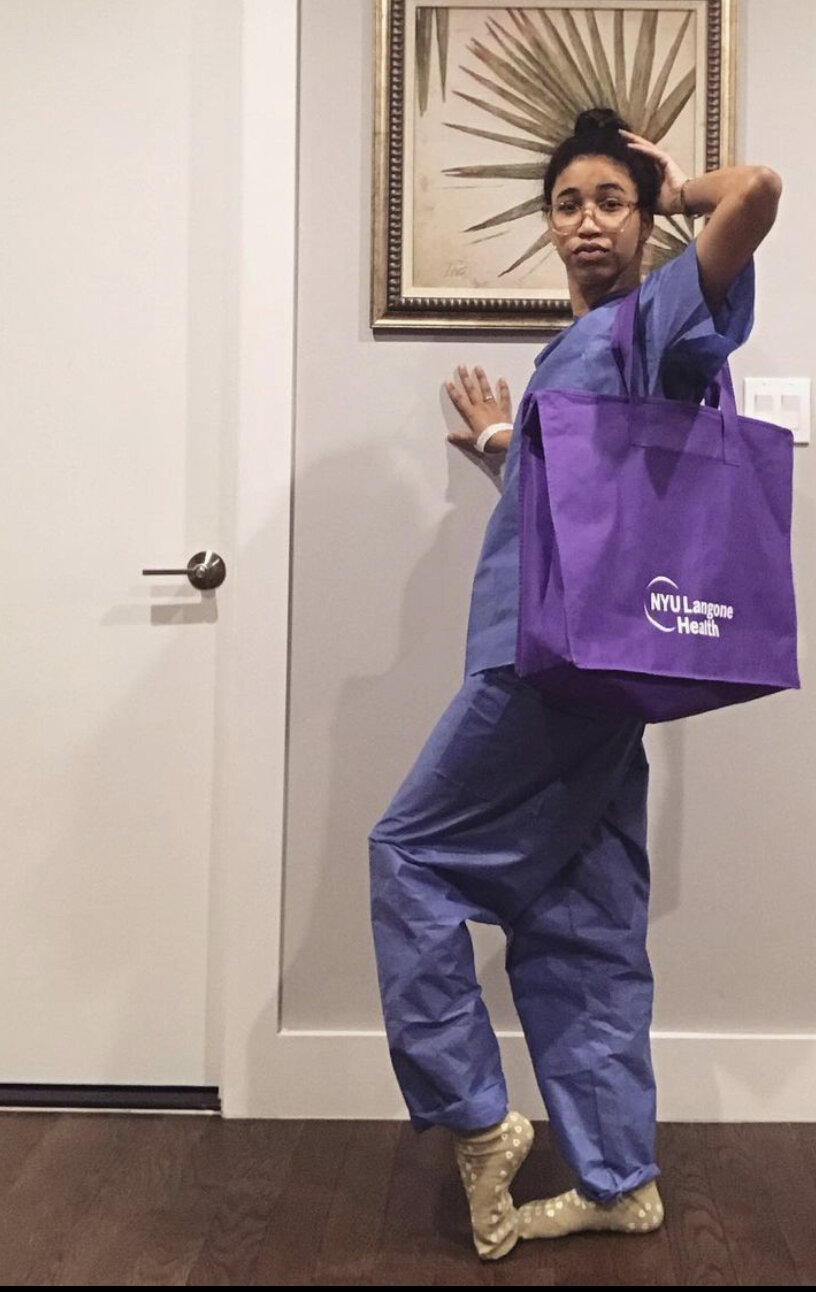Hospitalization
BY: KIANA BLAKE-CHUNG
In 2014, individuals needing mental health services and addition recovery services accounted for 6% of all hospitalization stays. In 2016 I became part of that number of individuals seeking professional help in a hospitalization stay.
December 25th, 2016 around 2 in the morning found me in a room with my mom, my friend Hope and a social worker, answering a plethora of questions to determine my eligibility for admittance into a psychiatric ward. I did not want to spend my Christmas in a psych ward. I was told that nobody was going to keep me there against my will, but that it was strongly advised that I spend the next few days under 24-hour surveillance after an attempt on my life. Somehow Hope convinced me to let go of her hand and I was taken behind the door that would lock me away from society for the next few days.
A lot of people find inpatient stays to be very helpful for them. If you are ever afraid that you might be a danger to yourself or others and you want to be proactive about your health, I say go for it. My inpatient stay was not very helpful to me and I think that is primarily because I was there over the holidays. I was told several times that there were many differences between my stay and how the facility is usually run, primarily because there were less people working there because it was over the holidays. Subsequently, the rehabilitation patients were combined with the psychiatric patients. I will share how my experience went before sharing some tips to consider if you ever consider an inpatient stay for yourself.
Hospital stays come with “free” socks! Perks!
As soon as I was separated from my mom and my friend, I was taken to a room where they took everything from me that could be potentially used to hurt myself. That included my scarf, the string in my hoodie and the string holding my sweatpants up. It may have potentially included shoelaces, but I was wearing slippers. This also included my iPod, due to HIPAA laws. I had not been planning on staying so I hadn’t even brought anything with me. I think they made me take my jewelry off beforehand too, for safekeeping, but I was highly distressed, as I’m sure you can imagine, and my memory is slightly spotty. I was sent to sleep in a room with a glass wall, on a pull-out chair and given a sheet to cover my body with. I was in between two grown men and struggled to find sleep in my terrified state.
The next day I struggled to adjust to the schedule. At 6am they would wake us up to take our vitals and then we would get in line to get our medication and were given breakfast. The food was your standard Sysco, school lunch kinda foods and it was oddly nostalgic, despite not tasting good. We filled out our sheets to track our mood in the morning, midday and at night. By the end of the day, I figured if I lied on this form I would get to leave earlier. We had a few group sessions a day and there were multiple smoke breaks a day. I had a neon bracelet on that let everyone know I was not allowed to leave the main common area, not even to wander the hallway and scan the wall full of pamphlets for something to read. My first night there I met with the doctor who gave me my first diagnosis, despite not knowing me for more than ten seconds. He told me that I would be put on Depakote for Bipolar Disorder as early as the next day. If you haven’t already read about my experience with medication, you can find that post here: www.mentalhealthtings.com/blog/medication. For Christmas dinner we were given a steak dinner, maybe to make up for the fact that they were not allowing our families to visit with us. It was delicious, but I could only eat a few bites.
The group sessions that we had mostly focused on addiction because we were grouped together, which is to say that none of what we talked about in those group sessions was useful to me. When I was finally permitted, I found the wall of knowledge once again and picked up every pamphlet of information that I felt applied to me: How to tell when you’re in a Codependent Relationship, A Guide to Bipolar moods, Dealing with Depression. I learned more from those packets than I did from our classes. By the second day I was given a bag of my belongings that included books and coloring books so I finally had something to do with my tons of freetime.
A collection of paperwork and pamphlets from my Christmas stay.
Not every hospital has the same rules, I found out. When I was on an eight hour hold in NYU Langone, years later, I was not allowed my phone or any books/ journals/ pens. It was eight hours of eating and chatting with the nurse that was on duty. When I wasn’t doing that, I was sitting alone with my thoughts, which obviously sucked the most. I have no way of knowing if I had been admitted that day, Halloween 2019 (What is it with me and holidays?) how that experience would have been.
Bearing in mind that every facility is different: here are some tips that I wish I would have known that would have helped me during my first stay.
Bring things to do! If there was one good thing about that time, it would have been the amount of time I had to work on things. I wish I had embraced my calling as a writer back then; I could have been done with my book in a couple weeks! (Factually untrue, I would not have been able to do any meaningful writing when I was that depressed, but it’s nice to imagine.)
Write out important phone numbers on a piece of paper. There was a phone that I used to talk to my mom and my friends almost daily. At the time the only phone number I had memorized was my mom and my ex’s. So if you don’t have a lot of numbers memorized, make sure they’re written out.
Talk with the staff. Most everyone I encountered was friendly and I even had a good chat with one of the attendants, Patrick, who wisely told me it was best that I move on from my toxic relationship with my ex. (I still didn’t listen, but I knew he meant well.) Also my communication skills granted me extra juice cups and chocolate Boosts.
Lastly, don’t lie on your mood chart paperwork. I did, because I was in a desperate hurry to get out of there. But if you’re voluntarily seeking help, you should definitely stay until you truly feel better or else why waste your time going in the first place?
A self portrait I took after my 8 hour psychiatric hold on Halloween 2019.
After three or four days I was released back to my family with the condition that I take some more group therapy/ behavior classes. In retrospect, I am grateful for the seemingly useless time I spent in the psych ward because it forced me to get some useful help that I needed. I got connected to resources that I never would have known existed if not for my short hospital stay.
I know that hospitalization may seem scary, but if you want help, go after it. We went with a place that was recommended by my psychologist aunt. Make sure if you’re not doing your own research that the person who recommends you a facility is someone you really trust. There can just as easily be some horror stories about these institutions. It is definitely a scary feeling to be quite literally locked away behind fortified glass doors, looking at the outside world and wondering if you’ll ever get to join it again. Hollywood does a terrifying portrayal of psychiatric wards and those who need them. I hope that if you’ve experienced hospitalization that it didn’t further traumatize you and that it was helpful for you. And I hope that no matter what you don’t feel any shame for getting the treatment that you needed in a mental health crisis.
S/O to Raquel Espasande for editing.
References: Treatment Advocacy Center
If you find this post valuable and believe in the mission of Mental Health Tings and would like to partner with us financially, you can make a one time donation by buying me a coffee!
You can also make a recurring monthly donation by signing up for our Here for the Blog $10 a month Patreon Tier.
You can also make a recurring monthly donation by signing up for our Here for the Blog $10 a month Patreon Tier.
Thank you!



